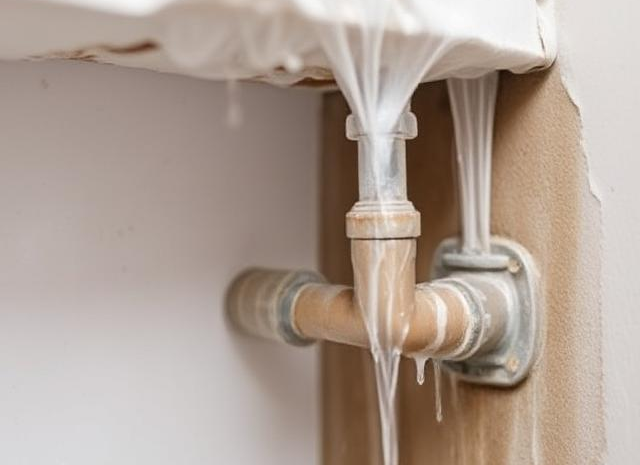
Does Home Insurance Cover Burst Pipes And Water Damage?
Yes, home insurance can cover burst pipes and water damage, but it depends on the type of water damage and the specifics of your policy. Here’s how it typically works:
1. Coverage for Burst Pipes
- Sudden and Accidental Damage: Homeowners insurance generally covers water damage caused by burst pipes if the damage is sudden and accidental. For example, if a pipe bursts unexpectedly due to freezing temperatures or old plumbing, the damage to your home, walls, and personal belongings may be covered.
- Repairs: The policy may also cover the cost of repairing the burst pipe itself, though this depends on the terms of the policy. The damage from the burst pipe (e.g., water damage to floors, ceilings, walls) is more likely to be covered than the cost of fixing the pipe unless it was due to long-term neglect or lack of maintenance.
2. What’s Typically Covered:
- Structural Damage: If the burst pipe causes damage to the structure of your home (e.g., walls, ceilings, flooring), that is usually covered under a standard homeowners policy.
- Personal Property: Water damage to your personal belongings, such as furniture, electronics, clothing, and other items, may also be covered if the damage is caused by a burst pipe.
- Additional Living Expenses: If your home is uninhabitable due to water damage from a burst pipe (for instance, if the damage is extensive and you need to move out for repairs), your policy may cover temporary living expenses, such as hotel stays or rental housing.
3. What May Not Be Covered:
- Maintenance Issues: If the burst pipe results from neglect or lack of maintenance (e.g., you didn’t fix a known plumbing issue or fail to properly winterize your home), the insurance company may deny your claim. Most policies exclude damage caused by poor maintenance or lack of repairs.
- Flooding: Homeowners insurance typically does not cover flood damage, which includes water damage from natural sources such as rising rivers, heavy rain, or hurricanes. If you live in an area prone to flooding, you may need to purchase flood insurance separately. Water damage caused by a burst pipe would typically not be considered “flooding” if it’s confined to a plumbing issue inside your home.
4. Water Damage from Other Sources
- Other Plumbing Issues: While burst pipes are a common cause of water damage, other plumbing issues like an overflowing bathtub or a leaky roof may also be covered if they’re sudden and accidental.
- Sewer Backup: Damage from a sewer backup (e.g., a backed-up toilet or sewage system) is often not included in a standard homeowners policy. Some policies offer sewer backup coverage as an add-on, so check with your insurer to see if it’s included or available.
5. What to Do If a Pipe Bursts
- Act Quickly: To avoid further damage and increase the chances of your claim being accepted, it’s important to act quickly if a pipe bursts. Shut off the water supply to your home immediately and take steps to limit damage (e.g., move valuables, put buckets under leaks).
- Document the Damage: Take photos of the burst pipe, water damage, and any affected areas before cleaning up or making repairs. This will help support your claim.
- Notify Your Insurance Provider: Contact your insurer as soon as possible to file a claim. Be prepared to provide documentation and cooperate with the claims adjuster.
6. Preventive Measures
- Regular Maintenance: Regularly check for any plumbing issues and maintain your pipes to prevent burst pipes. Proper maintenance and proactive repairs can help avoid issues that might not be covered by your insurance.
- Winterizing Pipes: In colder climates, make sure to winterize your pipes to prevent them from freezing and bursting during winter months. Insulate pipes in unheated areas like basements and attics to avoid cold-related damage.

